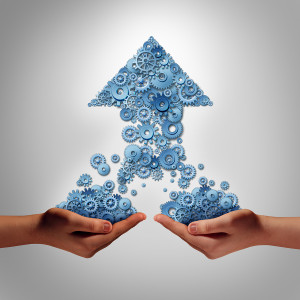
What does being ‘Otherish’ mean?
Adam Grant, in his bestselling book Give and Take, talks about the concept of “otherish” being the opposite of selfish and different from selflessness. “Otherish” people consider both their own interests and the interests of others simultaneously; they are looking for win-win situations, as opposed to selfless people who may only consider the other and end up in lose-win setups or selfish people who look for winner-takes-all.
‘Otherish’ is all about a fair exchange of value.
Being ‘otherish’ is an important concept to understand and apply if we are to set up truly customer centric business models where there is a fair exchange of value between buyer and seller – whether it be on an individual or organisation level.
Whether CEO or employee, we have a fiduciary duty to do the right thing by our organisation. Letting others take undue advantage of our organisation at our expense is not good business practice but neither is it good business practice if we take unfair advantage of our customers and suppliers. Some may disagree, holding a winner-takes-all view; however, most businesses would not survive for long with this approach, especially in the more transparent world in which we live now and besides, the vast majority of people do not want to live and work knowing their sole purpose is to rip people off.
Taking an ‘Otherish’ approach means we align the needs of others with our own needs. It’s a blend of selfish and selfless. If our business strategy is to build long term, healthy and profitable client relationships it must be based on a fair exchange of value where we all understand what is important to each party as it relates to our association. This ‘otherish’ concept isn’t just between buyer and seller, it can be between anyone.
‘Otherish’ is also about being reasonable.

So how do we become more ‘otherish’?
- Understand your organisation’s (or business unit/ division/ department) business goals and objectives. What is your organisation wanting to achieve? Who will your offering benefit? How will it help be better off?
- Ask questions about your customer’s (boss, team member, department head, supplier, etc.) priorities. What is important to them? What are they trying to achieve by working with you?
- Listen carefully to what they say and take notes. Is there common ground you can both work on? Are you both being reasonable? Will what each other wants to achieve create a fair exchange of value? If ‘yes’ make it work. If ‘no’ then find out why and see if there is another way forward where you both benefit. If still ‘no’ then don’t take on board the deal. Move on.
- Be reasonable. Be clear. Be courageous. Not every client is a good client. Not every supplier is a good supplier. Not every relationship is built on a fair exchange of value. Know when to walk away.
Being ‘otherish’ creates better, more sustainable relationships for everybody on every level.
If you would like to understand more about how to sell based on a fair exchange of value and the skills involved please do our free online Sales Essentials Test Drive module of our full 8 Module Sales Essentials Program.
Remember everybody lives by selling something.
Author: Sue Barrett, www.barrett.com.au


New Article Email Notification